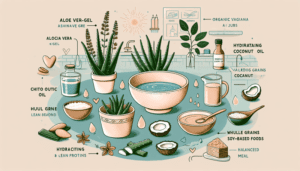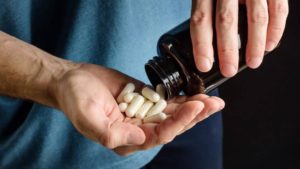The Ultimate Guide to Menopause Relief: Herbal Remedies and Supplements

Natural Herbal Menopause Relief: Supplements & Remedies Explained
Finding an effective menopause relief may sound easy but the task may not be as easy as it sounds. Menopause is a significant change in a woman’s life. It often comes with various symptoms such as hot flashes, mood swings, night sweats, and fatigue. Finding effective and safe ways to deal with these symptoms is crucial for improving quality of life during this time.
Discover the Benefits of Herbal Menopause Relief Remedies
Table of Contents
Herbal menopause relief remedies offer a natural way to handle menopausal symptoms. These remedies often contain plant-based compounds called phytoestrogens that act like estrogen in the body. This can help ease common symptoms like hot flashes and night sweats. Some popular herbal remedies include:
- Evening Primrose Oil: Known for reducing hot flashes and breast tenderness.
- Black Cohosh: Often used to lessen hot flashes and mood swings.
- Red Clover: Contains isoflavones that may help reduce menopausal discomforts.
Explore Top Menopause Supplements and Vitamins
While herbal remedies provide a natural approach, however, menopause supplements and vitamins can also be highly effective. They are designed to target specific symptoms and can be purchased without a prescription, making them accessible for many women. Important supplements to consider include:
- Vitamin D: Essential for bone health, which can be affected during menopause.
- Calcium: Supports bone density and overall skeletal health.
- Magnesium: Helps with mood regulation and sleep quality.
Over-the-Counter and All-Natural Menopause Relief Options
Finding the best solution for your individual needs might involve exploring both over-the-counter options and all-natural menopause relief supplements. Many women find relief through a combination of dietary changes, lifestyle adjustments, and the use of these natural products.
Brief Explanation of Menopause and Its Symptoms
Menopause is when menstrual cycles stop completely for 12 months in a row. This usually happens to women between 45 and 55 years old. Common symptoms include:
- Hot flashes
- Night sweats
- Mood swings
- Vaginal dryness
- Sleep disturbances
Importance of Safe Menopause Relief Options
Because menopause comes with a variety of symptoms, it’s important to find ways to relieve them that are both effective and safe. While herbal remedies and supplements can be helpful, it’s crucial to talk to a healthcare professional before trying any new treatment to avoid potential problems with other medications or health issues.
Herbal remedies and supplements offer promising solutions for managing menopause symptoms naturally. With careful selection and medical guidance, you can find an approach that works best for your unique needs.
1. Herbal Remedies vs. Supplements: Understanding the Difference
When it comes to menopause relief, it’s important to know the difference between herbal remedies and natural supplements.
Herbal Remedies
- Derived from Plants and Natural Sources: Herbal remedies use whole plants or plant parts like leaves, roots, seeds, and flowers.
- Forms of Administration: They are usually available as teas, tinctures, or extracts.
- Example: Black cohosh tea is a popular herbal remedy for alleviating hot flashes.
Natural Supplements
- Combination of Ingredients: Natural supplements may contain herbal extracts but often have other synthetic or natural substances as well.
- Forms of Administration: They are commonly found in pill or capsule form.
- Example: A supplement containing a blend of black cohosh extract, vitamins, and minerals targeted at menopause relief.
Key Considerations
A. Label Reading
B. Effectiveness and Safety
- While both options aim to alleviate menopausal symptoms, their effectiveness may vary.
- Safety is crucial; consult a healthcare professional before starting any new regimen. The FDA’s dietary supplement guide and this article by NIH offer additional insights.
Understanding these differences helps you make informed decisions about which approach might be best for managing your menopause symptoms. Whether you choose herbal remedies in their whole form or opt for natural supplements in pill or capsule form depends on your preference and specific health needs.
2. The Science Behind Herbal Remedies and Supplements for Menopause Relief
Herbal remedies have been used for centuries to manage menopause symptoms. Throughout history, different cultures have relied on plants to ease discomforts like hot flashes and night sweats. Some of the most well-known herbal supplements for menopause relief are:
- Black cohosh
- Red clover
- Dong quai
These herbs have been extensively studied for their potential benefits.
Effectiveness of Herbal Remedies for Menopause Symptoms
Numerous studies have looked into the effectiveness of herbal remedies for alleviating menopause symptoms. Here’s what the research says about each herb:
Black Cohosh
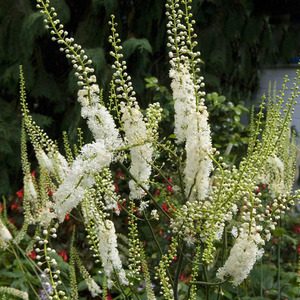
Research suggests that black cohosh may help reduce hot flashes and night sweats. This herb contains compounds that act like estrogen in the body, providing relief from menopausal symptoms. Here are some key points about black cohosh:
– Mechanism of Action: Black cohosh contains triterpene glycosides, which are believed to exert estrogen-like effects. These compounds interact with serotonin receptors, influencing the regulation of body temperature and mood.
– Clinical Studies: Several clinical trials have shown that black cohosh can significantly decrease the frequency and severity of hot flashes. For example, a study published in the journal Menopause.org found that women taking black cohosh experienced a notable reduction in hot flash episodes compared to those taking a placebo.
– Additional Benefits: Beyond alleviating hot flashes, black cohosh may also help with other menopausal symptoms such as night sweats, mood swings, and sleep disturbances.
– Usage and Dosage: Black cohosh is commonly available in various forms including capsules, tablets, and tinctures. The typical dosage ranges from 20 to 40 mg per day. However, it’s important to consult with a healthcare provider for personalized advice.
– Safety and Side Effects: While generally considered safe for short-term use (up to six months), some individuals may experience mild side effects like stomach upset or headaches. Long-term safety remains unclear, so ongoing medical supervision is recommended.
Incorporating black cohosh into your menopause management plan might offer significant benefits, especially if you’re looking for natural alternatives to hormone replacement therapy (HRT).
Red Clover
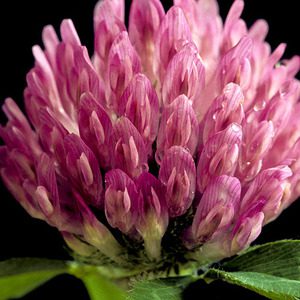
Red clover is another herb known to contain phytoestrogens, which are plant-based compounds that mimic the effects of estrogen. These phytoestrogens can help balance hormone levels in the body, offering a natural alternative to hormone replacement therapy (HRT).
Key Benefits of Red Clover
Several studies indicate that red clover can:
– Reduce Hot Flashes: Research suggests that red clover can significantly reduce the frequency and severity of hot flashes, making it a popular choice for women experiencing this common symptom of menopause.
– Improve Bone Health: Phytoestrogens in red clover may help maintain bone density, which tends to decrease during menopause due to lower estrogen levels.
– Enhance Cardiovascular Health: Some studies have shown that red clover may positively impact cholesterol levels and improve arterial flexibility, potentially reducing the risk of heart disease.
How to Use Red Clover
You can incorporate red clover into your regimen in various ways:
1. Tea: Brewed from dried flowers, red clover tea is a soothing way to consume the herb.
2. Capsules or Tablets: These are convenient options if you prefer a more concentrated form.
3. Tinctures: Liquid extracts offer another method for those who want quick absorption.
*Interesting Fact*
Did you know that red clover has been used traditionally not just for menopause but also for treating skin conditions and respiratory issues? Its versatility makes it a valuable herb in natural medicine.
When considering red clover for menopause relief, it’s essential to consult with a healthcare provider to ensure it’s appropriate for your specific health needs.
Dong Quai: A Traditional Remedy for Menopause
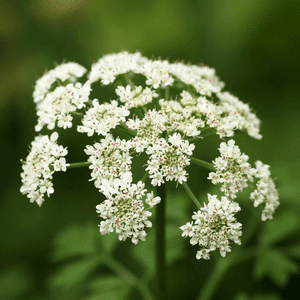
Often used in traditional Chinese medicine, dong quai is believed to balance estrogen levels in the body. This balancing effect can help alleviate menopause symptoms such as hot flashes and mood swings.
Key Benefits of Dong Quai
– Estrogen Balancing: Dong quai contains phytoestrogens, plant-based compounds that can mimic or modulate estrogen, thereby helping to stabilize hormone fluctuations during menopause.
– Hot Flash Reduction: Many women have found relief from frequent and intense hot flashes by incorporating dong quai into their routine. The herb’s potential to cool internal heat makes it a popular choice for managing this common symptom.
– Mood Stabilization: The herb’s potential to balance hormones can also contribute to mood stabilization, reducing irritability and emotional swings commonly experienced during menopause.
Traditional Uses and Modern Research
Dong quai has been a cornerstone in traditional Chinese medicine for centuries, often referred to as the “female ginseng” due to its wide range of benefits for women’s health. Modern research supports many of these traditional uses:
Note:* Studies indicate that dong quai’s phytoestrogens may offer a natural alternative to hormone replacement therapy (HRT), helping women manage menopausal symptoms more holistically.
How to Incorporate Dong Quai
To make the most of dong quai’s benefits, consider the following methods:
1. Supplements: Available in capsule or tablet form for easy dosing.
2. Teas: Brewed from dried dong quai root for a soothing daily ritual.
3. Tinctures: Concentrated liquid extracts that can be added to water or juice.
Always consult with a healthcare provider before starting any new supplement, especially if you have underlying health conditions or are taking other medications.
Ongoing Research and Personal Experiences
While research on the effectiveness of herbal remedies for menopause relief continues, many women report positive experiences with these natural alternatives. Scientific evidence supports the use of certain herbs:
- A study published in Menopause, The Journal of The North American Menopause Society found black cohosh to be effective in reducing menopausal symptoms.
- Another study highlighted in Phytotherapy Research showed that women taking red clover experienced fewer hot flashes compared to those taking a placebo.
Importance of Consulting Healthcare Professionals
Before incorporating herbal remedies into your routine, it is crucial to consult with a healthcare professional. They can provide personalized advice based on your medical history and any medications you may be taking. This step is important because:
- Some herbal supplements can interact with medications, reducing their effectiveness or causing harmful side effects.
- Certain herbs may not be suitable for individuals with specific health conditions.
For example:
- Black Cohosh: Potential side effects include stomach upset and headaches. It may also interact with certain drugs, like blood pressure medications.
- Red Clover: This herb might increase the risk of bleeding, especially when taken with blood-thinning medications.
Scientific Evidence Supporting Herbal Remedies
The growing body of scientific literature provides insights into how these herbs work:
- Black Cohosh: Contains triterpene glycosides which may mimic estrogen’s effects.
- Red Clover: Rich in isoflavones, compounds that function similarly to estrogen.
- Dong Quai: Contains coumarins and ferulic acid, which may help modulate hormones.
Summary of Key Points
To summarize the main takeaways from this section:
- Herbal remedies such as black cohosh, red clover, and dong quai have historical and scientific backing for alleviating menopause symptoms.
- Research indicates these herbs contain compounds that mimic estrogen, reducing hot flashes and mood swings.
- Consultation with healthcare professionals is essential due to potential interactions and side effects.
Understanding the science behind these herbal remedies can empower you to make informed choices about managing menopause symptoms effectively.
3. Potential Benefits and Risks of Using Herbal Remedies and Supplements for Menopause Relief
Popular Herbal Remedies
Several herbal remedies are commonly used to manage menopausal symptoms. Understanding their potential benefits and risks is crucial for making informed decisions.
Black Cohosh
- Potential Benefits: Studies suggest that black cohosh can help reduce hot flashes and mood swings. It contains phytoestrogens, which mimic estrogen in the body.
- Mechanism of Action: Believed to act on serotonin receptors, influencing mood and temperature regulation.
- Risks: Some users may experience stomach upset, headaches, or rash. There’s also a risk of liver damage with long-term use; hence, monitoring by a healthcare professional is advised.
Red Clover
- Potential Benefits: Red clover is rich in isoflavones, another type of phytoestrogen that can alleviate hot flashes and improve bone health.
- Mechanism of Action: Isoflavones bind to estrogen receptors, helping balance hormone levels.
- Risks: May interact with blood-thinning medications like warfarin, increasing bleeding risk. Allergic reactions are also possible.
Dong Quai
- Potential Benefits: Often referred to as “female ginseng,” dong quai may help alleviate menopause symptoms such as hot flashes and night sweats.
- Mechanism of Action: Contains compounds that mimic estrogen and improve blood circulation.
- Risks: Can interact with anticoagulants, increasing bleeding risk. Some users report photosensitivity or skin rashes.
Evening Primrose Oil
- Potential Benefits: Known for its high gamma-linolenic acid (GLA) content, evening primrose oil can help with mood swings and breast tenderness.
- Mechanism of Action: GLA is an omega-6 fatty acid that helps reduce inflammation and regulate hormones.
- Risks: Possible side effects include nausea, diarrhea, and headache. It may also lower seizure threshold in epileptics.
Maca
- Potential Benefits: Maca root can enhance libido and energy levels while reducing anxiety and depression associated with menopause.
- Mechanism of Action: Thought to balance hormone levels by acting on the endocrine system.
- Risks: Generally well-tolerated but may cause stomach upset or insomnia if taken in large amounts.
Ginseng
- Potential Benefits: Ginseng can improve mood, energy levels, and overall quality of life during menopause.
- Mechanism of Action: Acts as an adaptogen, helping the body cope with stress and fatigue by balancing hormonal levels.
- Risks: Possible interactions with blood pressure medications and anticoagulants. Side effects include insomnia, headaches, and gastrointestinal issues.
Consulting Healthcare Professionals
Using herbal remedies without professional guidance may pose risks due to potential drug interactions or side effects:
- Always consult a healthcare professional before starting any herbal remedy.
Key Considerations
When considering herbal remedies for menopause relief:
- Read labels carefully: Understand the ingredients and their potential impacts on your body.
- Monitor your body’s response: Be vigilant about any adverse reactions or interactions with other medications you are taking.
- Consult a professional: Discuss your options based on your individual health history.
Navigating the world of herbal remedies requires careful consideration to maximize benefits while minimizing risks.

